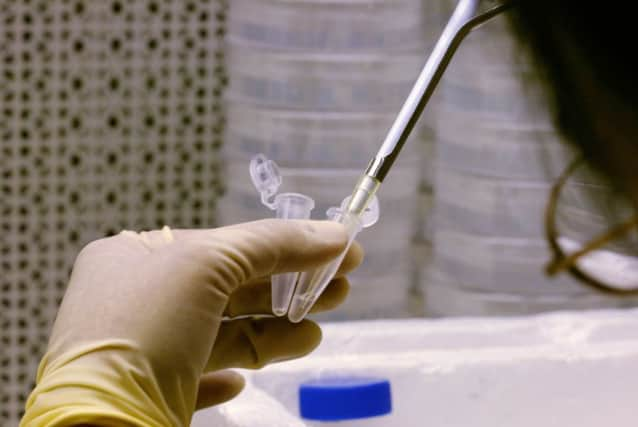Vincent McKay: Action needed tackle death toll from viral hepatitis


Last month, Glasgow’s Scottish Exhibition and Conference Centre (SECC) played host to the World Hepatitis Summit – the world’s first response to last year’s World Health Assembly Resolution calling for concerted action to reverse the ever-rising death toll from viral hepatitis.
The summit was a joint World Health Organisation (WHO) and World Hepatitis Alliance (WHA) event hosted by the Scottish Government and supported by Glasgow Caledonian University (GCU) and Health Protection Scotland.
Advertisement
Hide AdAdvertisement
Hide AdAt GCU, in association with Health Protection Scotland, researchers have led a broad programme on the burden of hepatitis C and interventions to prevent infection and associated disease, which provided the key evidence for the Scottish Government’s Hepatitis C Action Plan.
Ever since the publication of the Hepatitis C Action Plan in 2008, the Scottish Government has been recognised as a world-leader in its response to hepatitis C. Due to the emergence of highly-effective new therapies, the Scottish Government is committed to the elimination of hepatitis C as a public health concern in Scotland.
The summit brought together policy makers, patients, civil society, physicians and representatives from each of the World Hepatitis Alliance’s 200 patient group member organisations to discuss draft WHO targets that pave the way for the elimination of viral hepatitis as a problem of public health concern and the national action required to reach those targets.
The draft strategy sets out ambitious targets to greatly reduce new infections and deaths from viral hepatitis by 2030 and to provide a corresponding coverage of prevention and treatment interventions to make this happen.
At the summit, leaders from 98 countries made a commitment to the Glasgow Declaration on viral hepatitis, which calls on governments to implement comprehensive, funded national hepatitis programmes in line with the World Health Assembly Resolution 67.6.
Scotland was a fitting host for the unveiling of the 2030 targets of a 90 per cent reduction in new cases of chronic hepatitis B and C, a 65 per cent reduction in hepatitis B and C deaths, and 80 per cent treatment of eligible people.
The summit also marked the launch of the Scottish Government’s updated Sexual Health and Blood Borne Virus Framework, which outlines the progress made over the last four years in tackling viral hepatitis, HIV and sexual health issues.
The principal goal of the Scottish Government’s commitment to Hepatitis C service development is the prevention of serious morbidity and mortality.
Advertisement
Hide AdAdvertisement
Hide AdModelling work estimates that a minimum of 1,500 treatment initiates per year during 2015-2020 is required to stand a chance of reducing the number of new liver failure/cancer presentations from the current level of around 200 to 50 by 2020.
The Scottish Government describes the research dividend of Scotland’s Hepatitis C Action Plan as “spectacular”. Reports published in the world’s leading liver disease journals have not only informed and evaluated policy and practice in Scotland, but internationally.
Scotland should continue to lead the world in this way over the next five years, with a continued focus on research.
• Vincent McKay is Dean of the School of Health and Life Sciences at Glasgow Caledonian University